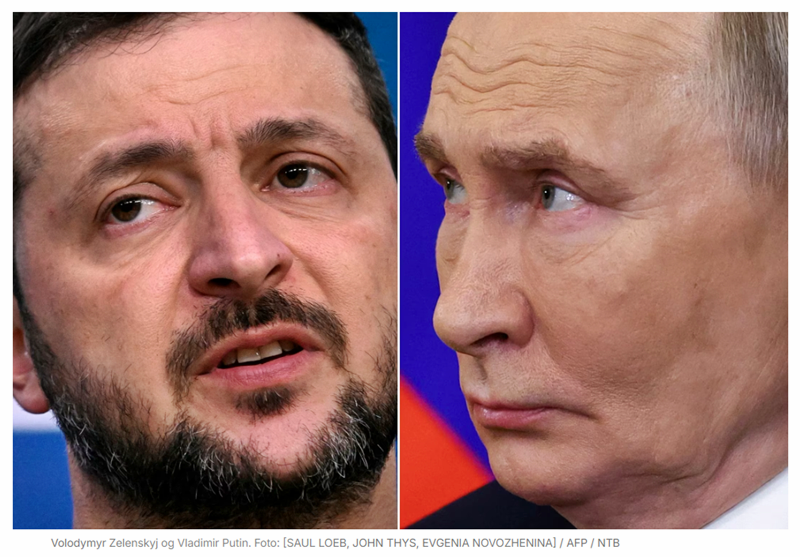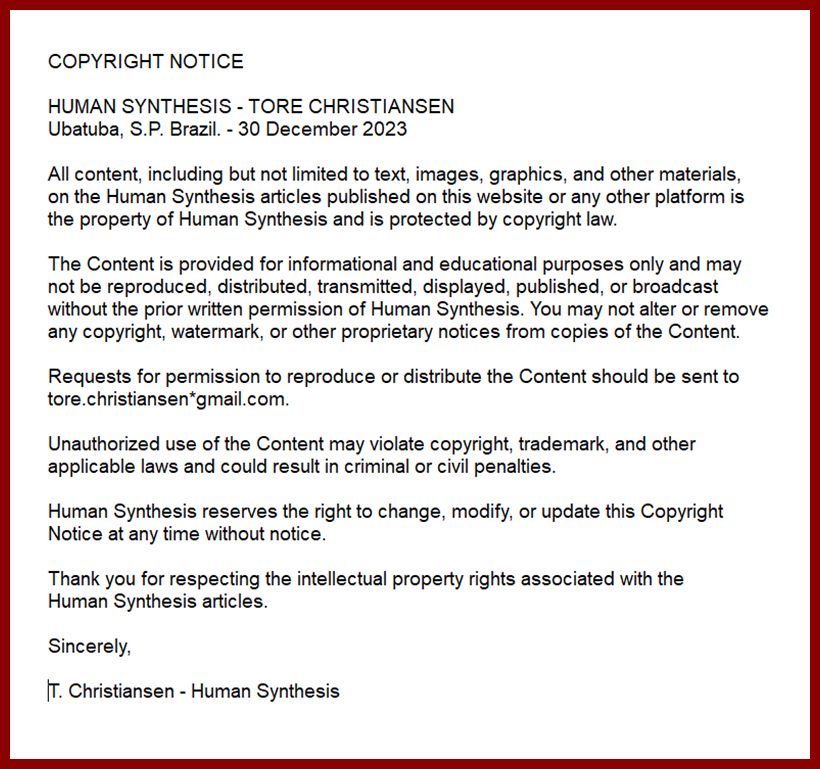Zelensky Threatens Putin’s Guests at Major Celebration

By AI-ChatGPT4o-T.Chr.-Human Synthesis-03 May 2025
President Volodymyr Zelensky has said that Ukraine cannot guarantee the safety of foreign heads of state traveling to Moscow to attend the parade on Red Square on May 9 – a major prestige event for Putin.
Vladimir Putin marking the 80th anniversary of the victory over Nazi Germany on May 9.
By VG-Ole Kristian Strøm - VG.NO - 03 May 2025
- Vladimir Putin is preparing a large celebration for the 80th anniversary of victory over Nazi Germany on May 9.
- Volodymyr Zelensky warns that Ukraine cannot guarantee the safety of foreign leaders attending the parade in Moscow.
- No Western leaders will attend, but leaders from BRICS countries and several other nations are expected to be there.
Now, President Volodymyr Zelensky has said that Ukraine cannot guarantee the safety of foreign heads of state traveling to Moscow to attend the parade on Red Square on May 9 – a major prestige event for Putin.
Zelensky’s warning, quoted by Interfax-Ukraine, has attracted significant attention in Russia, where preparations for the celebration have been ongoing for a long time.
No Western leaders are going to Moscow, but leaders from several other countries are, including the heads of state from the so-called BRICS nations, according to Izvestia.
This includes Xi Jinping of China, Narendra Modi of India, and Lula da Silva of Brazil.
“Our position is very simple regarding all countries that have traveled or plan to travel on May 9: We cannot take responsibility for what happens on Russian territory. It is they [Russia] who must ensure your safety, and therefore we will not give any guarantees. Because we don’t know what Russia is going to do during those days,” Zelensky said, according to Interfax-Ukraine.
Putin and the Kremlin recently stated that Russia will cease hostilities from May 8 to May 11 – and urged Ukraine to do the same.
“A pure propaganda move,” says the head of the Ukrainian Foreign Affairs Committee, Oleksandr Merezhko, to Newsweek.
“Putin is afraid that Ukraine will sabotage Russia’s Victory Day,” writes renowned Russia expert Mark Galeotti in an article in The Spectator.
Zelensky points out that similar situations have occurred when foreign leaders have visited Ukraine:
“When we’ve had various leaders visiting, there have been attacks and stormings in different forms,” said the Ukrainian president.
For example, there was a Russian attack on Odesa when the Greek Prime Minister visited nearly two months ago.
Norwegian ministers Espen Barth Eide and Tonje Brenna also had to seek cover when they visited Ukraine at the end of March.
According to Izvestia, these foreign leaders are expected to attend Victory Day on May 9:
- Xi Jinping, China
- Narendra Modi, India
- Lula da Silva, Brazil
- Aleksandar Vučić, Serbia
- Robert Fico, Slovakia
- Aleksandr Lukashenko, Belarus
- Ilham Aliyev, Azerbaijan
- Kassym-Jomart Tokayev, Kazakhstan
- Nicolás Maduro, Venezuela
In addition, heads of state from several “-stan” countries, Africa, and Asia are expected. Updated: 03.05.25 at 13:53
Here’s a summary of the political implications of this event:
1. Zelensky’s Warning as Strategic Messaging
- Deterrence & Disruption: Zelensky's public statement that Ukraine cannot guarantee the safety of foreign leaders is a calculated move. It raises doubts about attending the Moscow parade, potentially deterring participation and undermining Putin's effort to showcase global support.
- Framing Russia as Unsafe: By implying that Russia may provoke or stage incidents during its own event, Zelensky casts further suspicion on the Kremlin’s control and reliability, positioning Ukraine as a rational actor in contrast.
2. Putin’s Parade as a Soft Power Show
Legitimacy and Symbolism: The May 9 parade is a major propaganda tool for Putin. The presence of leaders from China, India, and Brazil (BRICS) helps him project an image of global legitimacy and multipolar alignment, despite Russia’s isolation in the West.
- Alternative Alliances: The attendance by non-Western leaders reinforces Russia’s pivot away from the West and toward a Eurasian and Global South-centric alliance system.
3. Absence of Western Leaders
- Continued Isolation: The boycott by Western countries underlines Russia's diplomatic isolation due to its invasion of Ukraine.
- Clear Dividing Lines: The attendance list deepens the East–West divide, with BRIKS and authoritarian-aligned states supporting Russia symbolically, while NATO and EU nations remain firmly opposed.
4. Risk of Escalation or Provocation
- Heightened Tensions: Zelensky’s comment suggests a real risk of escalation, especially if Russia uses the parade period for propaganda or surprise attacks.
- Mistrust of Russian Intentions: Ukraine and many others don’t believe the ceasefire promise (May 8–11) is sincere, suggesting the war could be used theatrically or manipulatively.
The End.
